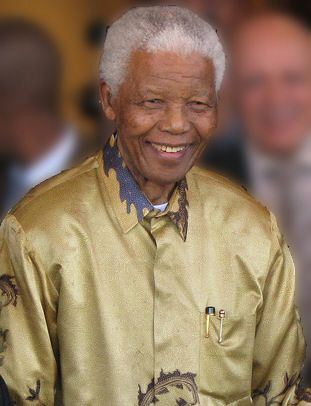Is War And Conflict Inevitable? Researchers Believe Psychology Can Promote Peace; Cites Mandela As Example Who Offered Different Approach

Humans have fought since the early days of their existence, and most assume that humans will, by nature, continue their violent conflicts in the name of religion, nationality or ethnicity. But three political psychologists at the University of Massachusetts Amherst believe the opposite: that war isn’t inevitable, and there is a way to stop it – through psychology.
The psychologists noted in American Psychologist, where their article was published, that political leaders are “crucial” in showing others how different ways of thinking can prevent violent conflict and find alternative means to solve problems. The authors pinpointed Nelson Mandela, former president of South Africa and the political leader who helped defeat apartheid, as an example of a leader who focused on an alternative to violence, making statements like “If you want to make peace with your enemy, you have to work with your enemy. Then he becomes your partner.”
"In summarizing psychological perspectives on the conditions and motivations that underlie violent conflict," lead author Linda Tropp said in a press release, "we find that psychology's contributions can extend beyond understanding the origins and nature of violence to promote nonviolence and peace." She adds, "We oppose the view that war is inevitable and argue that understanding the psychological roots of conflict can increase the likelihood of avoiding violence as a way to resolve conflicts with others."
This isn’t the first time psychologists have researched peace and conflict. The Society for the Study of Peace, Conflict, and Violence: Peace Psychology Division of the American Psychological Association is an organization of psychologists, students and professionals that aims to prevent conflict and violence globally, or to “increase and apply psychological knowledge in the pursuit of peace.” The organization publishes The Journal of Peace Psychology.
Some of the psychological factors cited by social psychology researchers in past studies include intergroup threat, uncertainty, group identity, emotions, and moral beliefs. They have also identified how intergroup conflict can affect a person’s view of the world and of themselves as a factor.
The authors noted that conflict is a way for people to address emotional and psychological needs for “identity, safety, security and power.” And while conflict has received much research and media attention, the authors point to the fact that nonviolence should be studied as well.
“Research that investigates how to mitigate negative consequences of war and violence is valuable,” the researchers conclude. “It is our contention that psychology can and should be applied to promote peace, not war.”



























